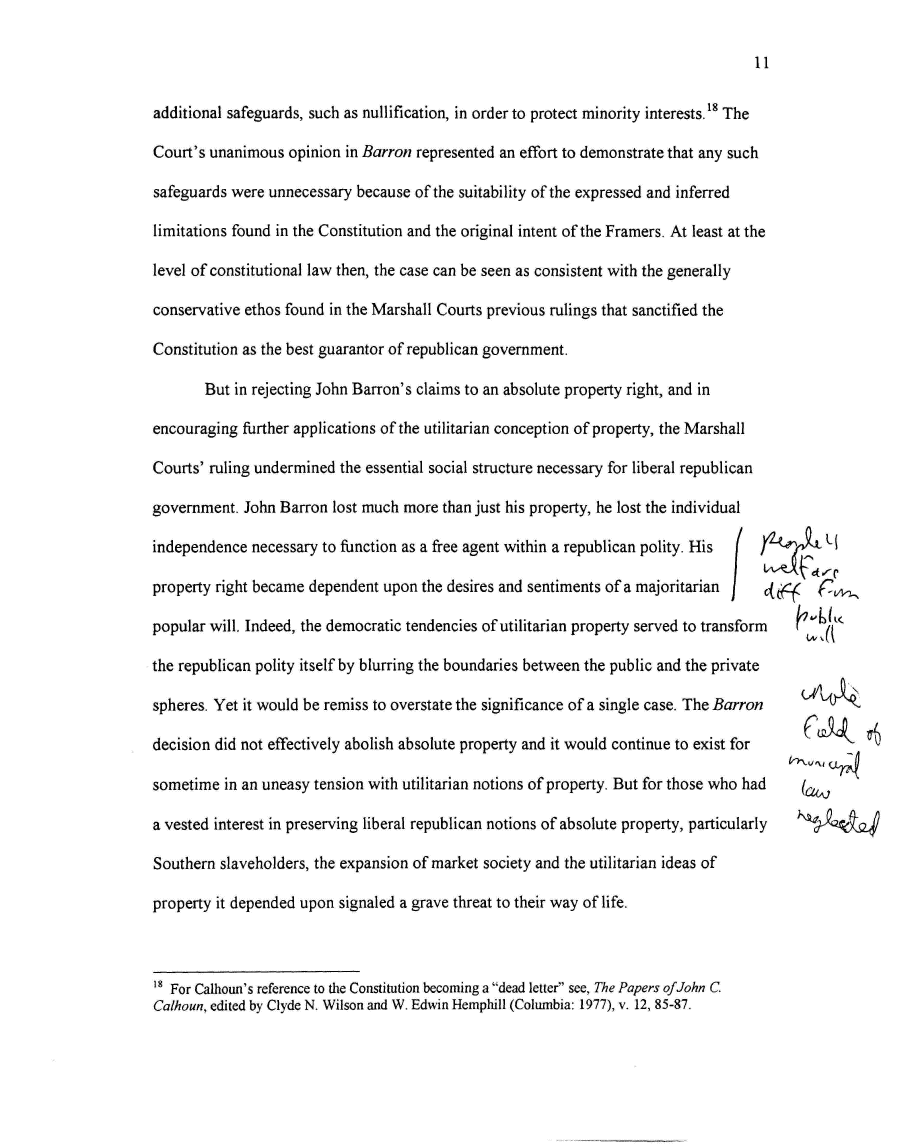|
11
additional safeguards, such as nullification, in order to protect minority interests.18 The
Court's unanimous opinion in Barron represented an effort to demonstrate that any such
safeguards were unnecessary because of the suitability of the expressed and inferred
limitations found in the Constitution and the original intent of the Framers. At least at the
level of constitutional law then, the case can be seen as consistent with the generally
conservative ethos found in the Marshall Courts previous rulings that sanctified the
Constitution as the best guarantor of republican government.
But in rejecting John Barren's claims to an absolute property right, and in
encouraging further applications of the utilitarian conception of property, the Marshall
Courts' ruling undermined the essential social structure necessary for liberal republican
government. John Barron lost much more than just his property, he lost the individual
independence necessary to function as a free agent within a republican polity. His [ / ^*>>A«, 1
*~4^r
property right became dependent upon the desires and sentiments of a majoritarian I |

